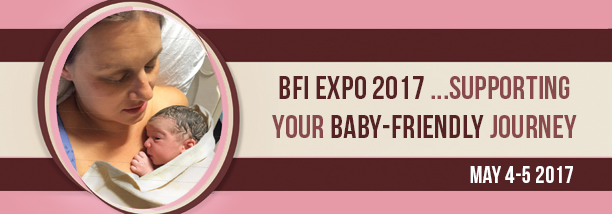
May 4th Speakers and Sessions


Dr. Emma Allen-Vercoe
Emma Allen-Vercoe PhD is a microbiologist who started her career with a degree in biochemistry from the UK. Her post-doctoral studies at Public Health England and University of Calgary focused on how gut bacteria influence health.
Since 2007, as a researcher and a professor at University of Guelph, she has been focusing on the study of the normal gut microbiota (the collection of microbes living in the gut), both in disease and health. Using her “Robogut” culturing platform, she is engaged in projects studying the gut microbiota in a wide range of diseases, including autism spectrum disorder, NEC, colorectal cancer and IBD.
She is co-founder of NuBiyota, a company that is developing biological drugs based on microbial ecosystems, to treat gut disease.
An Introduction to the Gut Microbiota: The Forgotten Organ
Objectives:
- The importance of the microbiome
- How it develops
- How medical practices can impact its development
- What we can do to support microbiome health
Dr. Louise Dumas
Louise Dumas, RN, MSN, PhD. Honorary professor-researcher in Nursing sciences, at Université du Québec en Outaouais (Western Quebec), Louise has studied in Canada, USA, and Sweden. Most of Louise’s research has been focused on perinatal practices, breastfeeding, and patient education.
As guest researcher at the Karolinska Institute, she is part of a research team studying Russian swaddling, skin-to-skin and early mother-infant interaction.
Louise has published many articles and book chapters and presented at numerous conferences throughout the world.
Louise is also lead assessor for the Baby-Friendly Hospital Initiatives, one of the Canadians at the WHO-BFHI committee for industrialized countries.
Louise has received many awards for the excellence of her work at the clinical, administrative, teaching and research levels.
Skin to Skin: The Safest Transition for Mother and Baby
Objectives:
- To provide strategies for implementation of skin to skin contact in the hospital setting
- Explore articles reporting infant deaths in the first hours and days following birth /analysis of those articles to understand findings
- Review the neurobiological rationale for skin to skin contact for parent and baby
- Safe procedures for skin to skin at both vaginal and Caesarean births and the postnatal period
- Explain safety issues with parents
- Healthcare provider’s roles in promoting and explaining safe care with skin to skin
Dr. Jo Watson
Jo Watson is a Nurse Practitioner and the Operations Director in the Women and Babies Program at Sunnybrook Health Sciences Centre.
She is also the Professional Leader for the NPs at Sunnybrook and a Certified Lactation Consultant. Jo has 35 years of experience working with childbearing families.
She co-authored the Labour and Birth chapter of the first edition of the Health Canada Family Centered Maternal and Newborn Care guidelines and led the design and implementation of a model of single room maternity care in a tertiary care setting.
Jo is an Adjunct Professor at the University of Toronto, Faculty of Nursing and received her PhD in 2010 having conducted a randomized trial on the effect of conservative intrapartum IV fluid management on outcomes in breastfed newborns.
She is a co-author of the recently published Cochrane Systematic Review evaluating interventions for the treatment of sore nipples in breastfeeding women. Jo is a past recipient of the Canadian Lactation Consultants' Award of Excellence for her work supporting breastfeeding women.
She has an active NP practice in the Nurse Practitioner led Breastfeeding Clinic at Sunnybrook Health Sciences Centre.
Strategies to Maximize Breastfeeding Exclusivity in a Tertiary Perinatal Centre
Objectives:
- Identify the most common reasons for medical supplementation in a tertiary care hospital
- Share strategies used to promote and protect exclusive breastfeeding
- Share strategies to ensure appropriate use of supplementation for breast milk infants
Michelle Buckner
Michelle Buckner is the mother of three breastfed children, holds a degree in Social Work and has been a La Leche League Leader for 12 years.
Michelle has been working with women and families in Waterloo Region for 20 years, and is the coordinator of the Breastfeeding Buddies program in Waterloo Region.
Michelle has spoken at numerous conferences across Canada on the role of peer support, prenatal breastfeeding programs and engaging community partners in a peer led model of support.
She has authored several Best Start breastfeeding and peer training resources and is a facilitator for the 20 hour WHO peer breastfeeding course.
Building a Breastfeeding Culture: Making Breastfeeding Normal and Accessible for All Families through Peer Support
Objectives:
- Review the role of peer support in the context of the social determinants of health
- Explore cultural norms that may be barriers to accessing service
- Promote client self-efficacy through peer support to foster a healthier and vibrant community for all
- Explore ideas on connecting with at risk population and recruiting diverse peer breastfeeding volunteers to create a culture that promotes breastfeeding
Dr. C. Meghan McMurtry
C. Meghan McMurtry PhD is an Assistant Professor of Psychology at the University of Guelph, Director of Pediatric Pain, Health, and Communication Lab, and a Clinical Psychologist with Pediatric Chronic Pain Program at McMaster Children’s Hospital.
Her research and clinical interest in pediatric psychology focus on acute and chronic pain, medical procedure-related fear, as well as communication and family influences in these contexts.
Procedural Pain and Management Strategies
Objectives:
- Define pain, fear, anxiety and distress and describe their relevance to needle procedures
- Explain the short and long term consequences of unmanaged pain and distress related to needles
- Identify evidence based pain and distress management strategies for infants and young children undergoing needle procedures (i.e. skin-to-skin, breastfeeding, sucrose)
Gillian Elliott
Gillian Elliott is a researcher and doctoral student at the Institute of Health Policy, Management and Evaluation at the University of Toronto.
Gillian’s research interests focus on maternal health and utilizing knowledge translation strategies to support optimal research uptake in clinical settings. Currently her research focuses on how Integrated Knowledge Translation strategies can be used to reduce unnecessary in-hospital formula supplementation.
Gillian also volunteers with breastfeeding families through Trillium Health Partners' in-hospital Breastfeeding Companions program and the Region of Peel's Breastfeeding Companions telephone support program.
An Exploratory Study of Women's Perceptions of Breastfeeding Support
Objectives:
- Hear how qualitative research gives insight into how birth practices, infant care protocols and professionalized practices influence breastfeeding support and in turn impact women’s breastfeeding experiences.
- How can we prevent the perception that breastfeeding is technically challenging and requiring expert intervention, rather than portrayed and promoted as a natural and easy process.
Conference Registration

